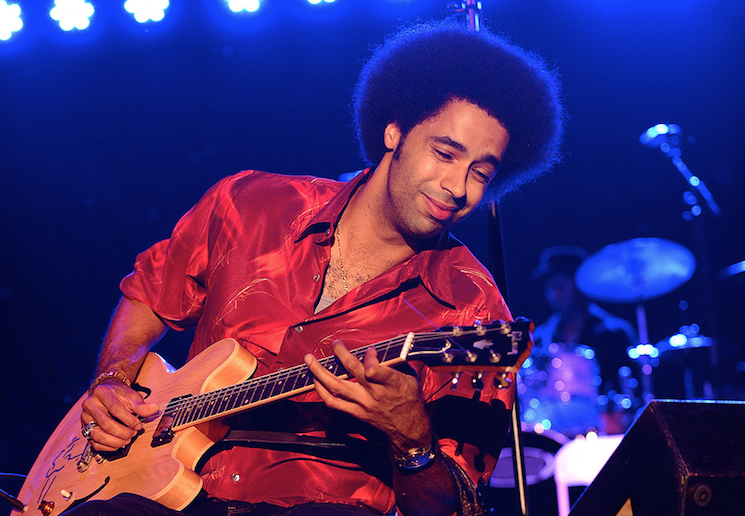After an Orlando childhood, Selwyn Birchwood studied business in college, earning an MBA from the University of Tampa. Away from class, he was getting schooled in the blues by working with Sonny Rhodes, learning how to run a band along the way.
That's an unusual pedigree for a would-be bluesman. But it's one that is serving the rising blues star well.
"People would tell me all the time, you're playing music, you don't need an education," Birchwood says. "I was like, 'I disagree. I feel I need it even more so because I play music.' The music business is very unsettled – look at how CD sales have changed over the last five to 10 years. And who knows whether we can do this for a living and be halfway comfortable forever? It's already helped me a lot in running my business."
Rhodes, the Texas bluesman who musically adopted the young musician who first picked up a guitar at age 13, was all about education for his young protégé – both formal and informal, in school and on the road.
"The more I look at it and see the way I run my band, it's kind of like I went to the school of Sonny Rhodes," says the 30-year-old Birchwood. "He picked me up when I was 19. He took me all over the U.S. and Canada during breaks in school – he made sure I went to college. He showed me everything you're going to encounter, bad and good. It was kind of like an apprenticeship kind of thing. When you have somebody like that take you in and teach you, it's an education you can't get any other way."
Birchwood's now using that education to his advantage. After two self-released albums (FL Boy and Road Worn), he's pushing his Alligator Records debut, Don't Call No Ambulance, in clubs across the country.
Birchwood got signed to Alligator, the respected Chicago-based blues label, after he and his band won the 2013 International Blues Challenge. That was Birchwood's third try at the competition, which brings a couple hundred acts from around the world to Memphis each spring.
"That was going to be the last time," he says. "It's expensive to do it – not just getting there and staying, but not playing shows around home. You should go up there wanting to network, advance yourself and get exposure. You can't bank on winning.
"You go up there and play your heart out and then it's just what the judges like," Birchwood continues. "You can't get your hopes up. So I was super happy with the result. The third time was a charm on that one. It helped unlock lots of doors."
The striking Don't Call No Ambulance should open even more doors. Packed full of smartly crafted songs that draw on the blues tradition, but have fresh power and great stylistic range, the record showcases Birchwood's white-hot guitar work. But unlike many blues records, the guitar work is always in service of the song.
"I've gotten records from great guitarists who I really like live, and after two or three songs, my ears get tired," says Birchwood, who produced the album. "I think a lot of people's ears get tired. The records I enjoy the most and play the most aren't the fancy, lots-of-notes-and-changes guitar things. They're the ones that set a mood and [have] emotion. That's what I was trying to do with this record. ... Some of the songs on the record don't have any guitar leads at all. They were better suited to saxophone. That's fine with me."
The saxophone belongs to Regi Oliver, who primarily plays baritone in the band's live shows. His presence hearkens back to a past when sax was the lead voice in R&B, and it sets Birchwood's band apart from the standard two guitars, bass and drums blues-band lineup.
"We're always trying to get a little different sound, searching for a sound we can call our own," Birchwood says. "I try to feature Ray as much as we can. He's a great musician. He's a Berklee School of Music graduate and can really play. A lot of people compliment us on the sax, which is great."
As they have been for the last couple years, Birchwood and his band are traversing the country, playing as many shows as possible, trying to build a following in old-school blues fashion.
"There's just no easy way to do it," Birchwood says. "You have to be ready to work in this style of music. I don't know of anybody who gets placed at the top, that got an elevator lift rather than taking the stairs. If you're not ready to work, this isn't for you. We love it, and we're going to keep working."


